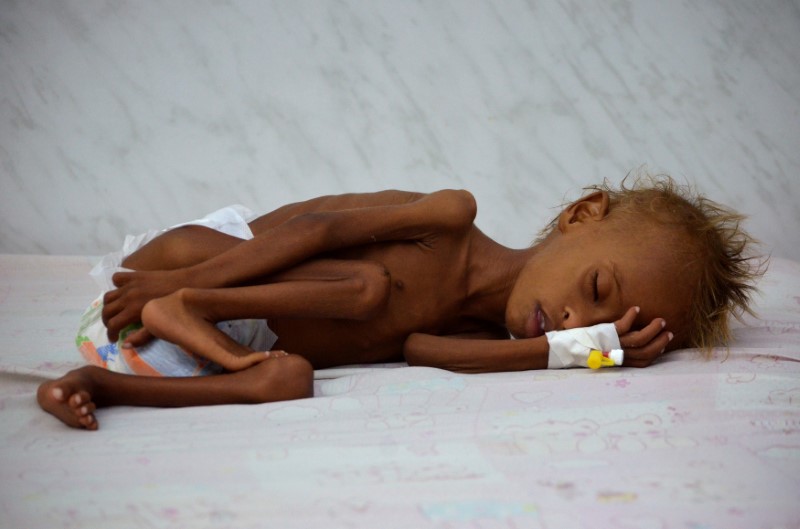
By Maytaal Angel
LONDON (Reuters) – Some 41 million people worldwide are at at imminent risk of famine, the United Nations World Food Program (WFP) warned on Tuesday, saying soaring prices for basic foods were compounding existing pressures on food security.
Another half a million are already experiencing famine-like conditions, said the WFP’s Executive Director David Beasley.
“We now have four countries where famine-like conditions are present. Meanwhile 41 million people are literally knocking on famine’s door,” he said.
The WFP, which is funded entirely by voluntary donations, said it needs to raise $6 billion immediately to reach those at risk, in 43 countries.
“We need funding and we need it now,” said Beasley.
After declining for several decades, world hunger has been on the rise since 2016, driven by conflict and climate change.
In 2019, 27 million people were on the brink of famine, according to the WFP, but since 2020 the COVID-19 pandemic has been added to the mix.
World food prices rose in May to their highest levels in a decade, U.N. figures show, with basics like cereals, oilseeds, dairy products, meat and sugar up a combined 40% versus year ago levels.
Currency depreciation in countries like Lebanon, Nigeria, Sudan, Venezuela and Zimbabwe is adding to these pressures and driving prices even higher, stoking food insecurity.
Famine-like conditions are present this year in Ethiopia, Madagascar, South Sudan and Yemen, as well as in pockets of Nigeria and Burkina Faso.
But Beasley warned against “debating numbers to death” as happened in Somalia in 2011 when 130,000 people – half the eventual toll from starvation – had already died by the time famine was declared.
The WFP, which was awarded the Nobel Peace Prize last year, says around 9 percent of the world’s population, equivalent to nearly 690 million people, go to bed hungry each night.
(Reporting by Maytaal Angel; editing by John Stonestreet)



